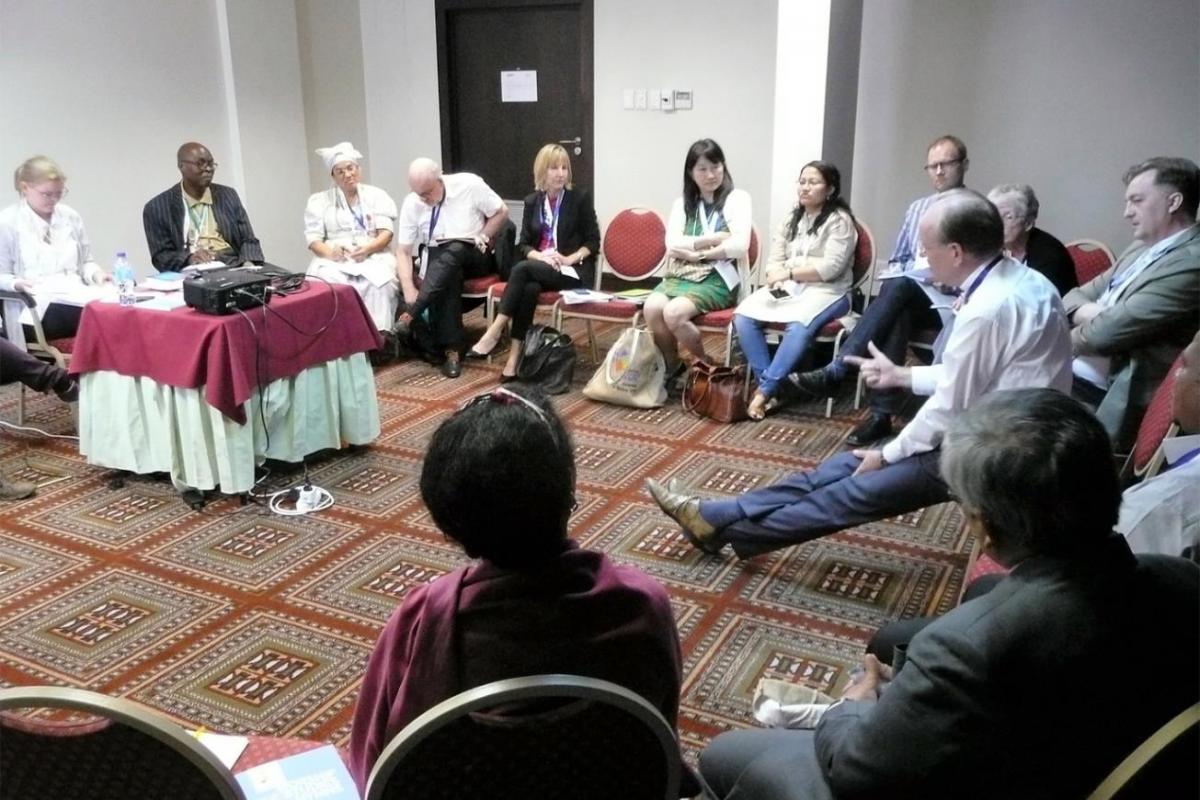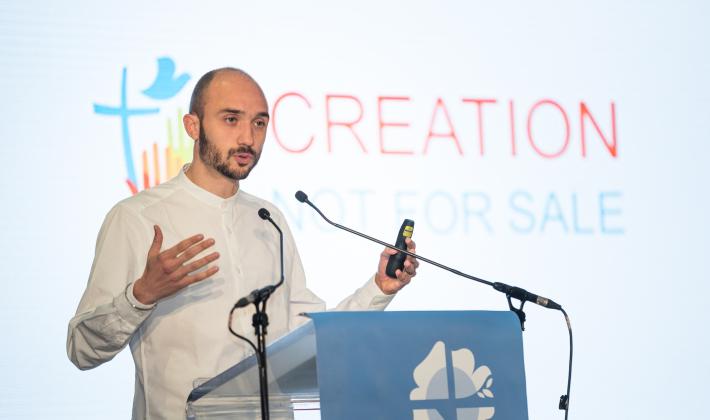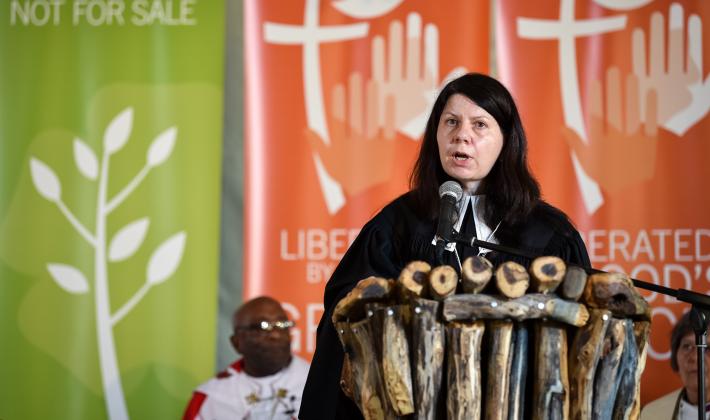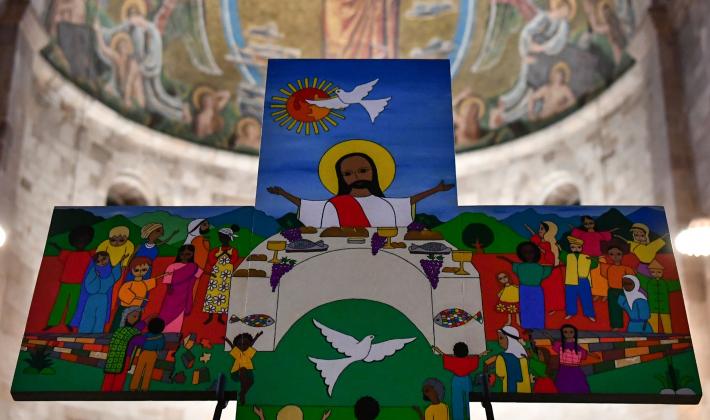
Delegates sitting together after the keynote presentation on the Assembly sub-theme “Salvation – Not for Sale” at the Twelfth Assembly of The Lutheran World Federation (LWF) in Windhoek, Namibia, were concerned. In a village group, about three dozen delegates reflected on what they had listened to in the plenary.
The overall consensus was that in their home countries on all continents and in all seven regions, many people are longing for some kind of salvation in their life. However, there seems to be a growing tendency to look for easy and quick ways to attain what is perceived as salvation, and even to exploit that yearning for financial gain.
Paying for a prayer
Ranjita Christi Borgoary from India is concerned about the practice that many people pay the pastor for praying for them to be cured from illness. She also criticized that Christmas season has become a completely commercial event.
Titus Augkongo from Namibia reported on the “prophet of South Africa” coming to Namibia. People apparently paid 100,000 Namibian dollars to sit next to this preacher, because they hoped to be healed. Bishop Ralf Meister from Germany called this “longing for a fetish.” A Namibian, Aletta !Noabes warned that “this is taking us back.” Noabes complained that Lutherans visit these prophets as well..
Helen Bahru, delegate from Ethiopia, has witnessed similiar practices in her country: Churches offering prayer for money, and among those paying for the “service”, members of Lutheran congregations. “A lot of sick people are queuing there because of the hope of being healed.”
Question of education
For her the commercialization of spirituality is to a large degree due to poverty. “It would be much better if these people could visit a clinic,” Bahru said. She urges for more diaconal work in the congregations. But she sees also that people are missing something in the Lutheran service to turn elsewhere. Not only poverty has to be addressed; for Bahru there is also a need for a new theology.
Leroy Nicholson from Guyana took up this issue. For him it is “a matter of educating people” so that they do not visit other churches. Stig Lundberg from Sweden agreed. “Salvation has become a market product,” he said. Because of “the less lively services at Lutheran churches,” people go to so-called family churches.
Daniel Andy Hoffmann Sinaga from Indonesia voiced the sentiment that “money has hijacked the church.” He says that as a deacon it would not be easy for him to preach the gospel of salvation.
Technical developments replace spirituality
Eun-hae Kwon, LWF Vice president from South Korea said that people are longing for blessings and “living water” so that one never thirsts. She is afraid of the technical developments such as cloning and virtual reality. “They are so promising and they are sold as living water,” she said. And she asked, “What is our answer to such developments?” In contrast to all these promises, she sees salvation as “reconciliation between sinner and God—that has nothing to do with any property,” she explained.
Through Jesus alone
Bishop Ralf Meister from Germany sees a huge danger especially in the western churches “that we talk about churches bringing salvation, but in reality, salvation comes through Jesus alone.” He asked: “Are we really free from seeking salvation in material objects?” For him salvation is in fact the only thing which is “not at our disposal”.
For Lois Griffin from Canada a big problem is that many people think that they do not need salvation. And she pointed out that the phrase “not for sale” could also be interpreted as “not available.”
“People do not see themselves as sinners anymore,” Rev. Sveinn Valgeirsson from Iceland added. Everybody agreed with Bishop Meister who commented on the difference for people who reach for salvation in their material life, while “we have the hope of a life hereafter.”
LWF/Rainer Lang



